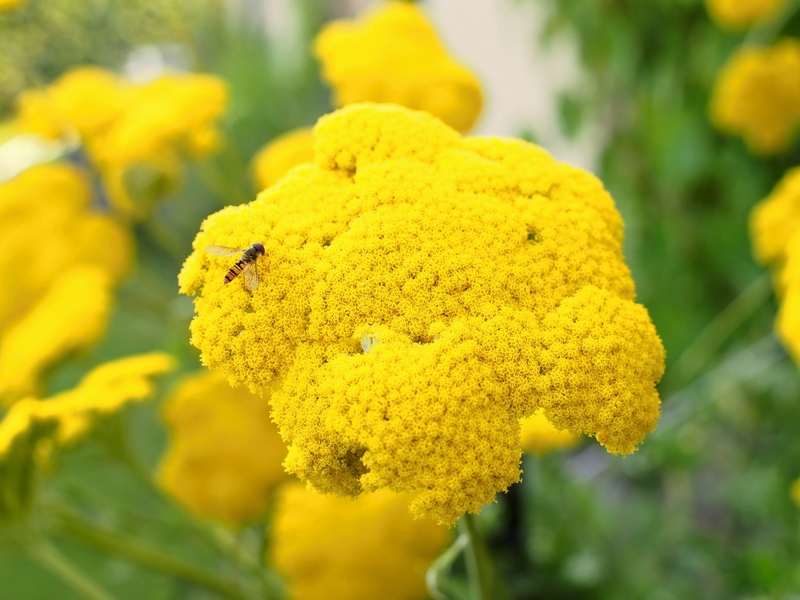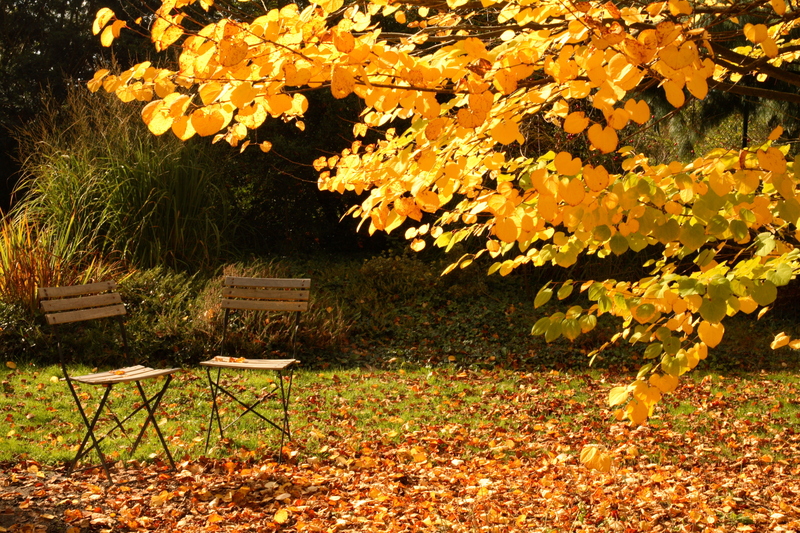Gardening with Furry Friends in Mind
Posted on 07/09/2025
Gardening with Furry Friends in Mind: The Ultimate Guide to Pet-Friendly Gardening
For many homeowners, gardening with furry friends in mind isn't just about creating a lovely outdoor space--it's about crafting a safe and enjoyable haven for both people and pets. Our dogs, cats, and other furry companions often spend as much time in our yards as we do, so it's vital to ensure that our gardening practices are safe and pet-friendly. In this comprehensive guide, you'll learn everything you need to know about pet-safe gardening--from choosing non-toxic plants and natural pest controls to building pet-proof landscapes that also delight your eye.
Why Gardening with Furry Friends in Mind Matters
Dogs and cats are natural explorers; they love to sniff, dig, chew, and sometimes eat the things they find outside. Unfortunately, many common garden plants and products are toxic to pets. According to veterinarians, an estimated 100,000 pets are affected each year by exposure to harmful garden substances and plants. As such, pet-safe gardening is essential for the health and wellbeing of your beloved animals.
Common Hazards in the Garden
- Toxic Plants: Many popular flowers and shrubs can be harmful if ingested by pets, such as lilies, foxglove, oleander, and sago palm.
- Pesticides and Herbicides: Chemicals used for weed and pest control can cause illness, skin irritation, or worse if your pet is exposed to them.
- Garden Tools & Sharp Objects: Rakes, pruners, and other tools left out can injure curious animals.
- Ponds and Water Features: Uncovered or deep water sources pose a drowning risk for pets, especially puppies and kittens.

Designing a Pet-Safe Garden
When gardening with pets in mind, the layout of your garden plays a huge role in pet safety and enjoyment. Here are the most effective strategies to create a pet-friendly landscape:
1. Create Secure Boundaries
- Fencing: Build adequate fencing to keep dogs and cats safely within your yard. For climbers (like cats), consider adding cat-proof netting or angled fence toppers.
- Gates: Ensure gates are secure and self-closing to prevent accidental escapes.
2. Offer Paths and Digging Zones
- Pet Paths: Dogs often create their own routes through the garden. Lay stone, mulch, or gravel walkways where your pets naturally roam.
- Digging Pits: For dogs who love to dig, designate an area filled with sand or soft earth where digging is allowed, and reward them for using it.
3. Provide Shade and Shelter
- Natural Shade: Plant trees and tall shrubs to offer cool spots during sunny or hot weather.
- Shelter Structures: Include dog houses, tunnels, or cat condos to give your pets different places to rest.
4. Choose Pet-Safe Garden Features
- Water Bowls and Fountains: Opt for shallow, clean water sources that are easy for pets to safely drink from.
- Non-Toxic Mulches: Avoid cocoa mulch, which is poisonous to dogs; shredded cedar or pine mulch is a safer alternative.
Pet-Safe Plant Selection
Perhaps the most important consideration while gardening with cats and dogs around is plant choice. Many attractive garden plants can actually be dangerous if nibbled by curious pets.
Plants to Avoid in Pet-Friendly Gardens
- Lilies: Extremely toxic to cats, even small ingestions can cause kidney failure.
- Sago Palm: All parts are poisonous, particularly the seeds or "nuts"--can cause vomiting, seizures, and liver failure in dogs and cats.
- Oleander: Every part of this plant is toxic, potentially fatal if chewed.
- Foxglove: Contains compounds that can affect heart function.
- Azaleas and Rhododendrons: Can cause severe gastrointestinal distress in pets.
- Tulip and Daffodil Bulbs: The bulbs are especially hazardous if dug up and ingested.
Always double-check the safety of new plants before bringing them home.
Popular Pet-Friendly Plants
Fortunately, plenty of beautiful, non-toxic plants make pet-safe gardening both practical and attractive:
- Marigolds: Bright and cheerful, these annuals are generally considered safe for pets.
- Snapdragons: Add vertical interest and vibrant color without toxicity concerns.
- Sunflowers: Not only are they beautiful, but the seeds are also safe for most pets in small quantities.
- Roses: While the thorns can prick, the plants themselves aren't toxic.
- Basil, Sage, Thyme, and Other Herbs: Many culinary herbs are safe for pets and can even provide enrichment.
- Spider Plant: A favorite for cats, as it's non-toxic and resilient.
- Boston Fern: A lovely, safe plant for shady corners of your garden.
Pet-Proofing Your Garden
Even with the right plant choices, a pet-proof garden involves additional measures to keep both flora and fauna safe and undamaged. Here's how:
Use Barriers and Raised Beds
Protect delicate plants and vegetable patches with sturdy raised beds or garden edging. For extra-determined diggers or chewers, chicken wire or decorative fencing can ward off unwanted pet visits to vulnerable areas.
Apply Pet-Safe Pest Control
Many standard pesticides and fertilizers contain chemicals dangerous to animals. Opt for these alternatives:
- Neem Oil: An organic pesticide that's generally safe for pets once dry.
- Diatomaceous Earth: A natural powder that controls bugs without harming mammals.
- Coffee Grounds or Citrus Peels: Use to repel slugs and cats from certain spaces safely.
- Integrated Pest Management (IPM): Combat pests using beneficial insects and careful plant selection, reducing or eliminating the need for chemicals.
Avoid all products containing metaldehyde, organophosphates, or carbamates around pets.
Store Garden Chemicals and Tools Safely
- Keep all fertilizers, compost, and chemicals in sealed, pet-proof storage.
- Rinse and put away all garden tools after use to prevent injury or accidental chewing.
Common Pet Behaviors and Garden Challenges
Understanding how pets interact with your garden can go a long way toward preventing damage and ensuring everyone's safety. Dogs and cats have habits that can sometimes run at odds with a well-manicured green space.
Dog-Friendly Garden Solutions
-
Digging:
- Offer a designated "dig zone" and bury toys or treats there to encourage appropriate digging.
-
Urinating on Lawns:
- Train your dog to use a specific area lined with pebbles or mulch; watering the area after urination can dilute harmful salts and prevent grass burn.
-
Chewing Plants:
- Discourage by offering safe chew toys. Bitter sprays can also discourage nibbling.
Cat-Friendly Garden Tips
-
Outdoor Littering:
- Build a sand or loose-soil spot away from edible plants where cats can dig and do their business.
-
Climbing and Perching:
- Incorporate posts or cat trees specifically for climbing and sunbathing.
-
Protecting Birds:
- Add bells to collars and use feeder placements that make it harder for cats to hunt birds.
Incorporating Enrichment for Pets in Your Garden
Gardening with furry friends in mind includes ensuring your pets have fun, stimulating outdoor experiences. Consider integrating the following:
Safe Edible Plants for Pets
- Dandelion greens, oat grass, wheatgrass: Cats and dogs sometimes nibble these, and they offer minerals and fiber.
- Blueberries and carrots: Low-calorie, dog-safe snacks that can even be grown in raised beds.
Sensory Play Features
- Catnip beds and valerian patches: Many cats enjoy rolling or playing in these areas.
- Dog obstacle courses: Set up tunnels, ramps, and weave poles for exercise and entertainment.
- Water games: Kiddie pools or sprinklers for dogs that love to splash.
Maintaining a Pet-Friendly Garden Through the Seasons
Pet-safe gardening is an ongoing task. Consider the following seasonal adjustments:
Spring and Summer
- Watch for blowflies and ticks; keep lawns trimmed and use pet-safe repellents.
- Hydration is crucial--refill water bowls often, and provide ample shade.
- Double-check for emerging toxic plants or mushrooms after rain.
Autumn
- Rake fallen leaves quickly, as leaf piles can harbor mold or toxins, and can attract pets for digging or play.
- Harvest any fallen fruit before pets can access it and potentially eat spoiled or fermenting produce.
Winter
- Consider covering sensitive garden beds to prevent being used as pet toilets.
- Store all ice melt and salt products--only use pet-safe brands on walkways and patios.
Frequently Asked Questions (FAQ) about Pet-Friendly Gardening
Q1: What should I do if my dog or cat eats a suspect plant?
Contact your veterinarian or a pet poison hotline immediately. Identify the plant, monitor symptoms, and bring a sample to your vet if possible.
Q2: Are grass lawns safe for pets?
Lawns are generally safe, but avoid using chemical fertilizers or herbicides. Plant pet-friendly grass varieties like fescue or rye and rinse grass paws after walks outside.
Q3: Can I use mulch in a garden with pets?
Yes, but avoid cocoa mulch and stick to shredded pine, cedar, or untreated wood mulches. Pebbles and gravel are also options for heavy-traffic areas.
Q4: What's the best way to keep my dog from destroying my flower beds?
Installing low fences or decorative edging, using raised beds, and training your dog with positive reinforcement are the most effective strategies.

Conclusion: Enjoy the Outdoors Together
Gardening with furry friends in mind means more than simply removing the most dangerous plants--it's about creating a flourishing space where both you and your pets can safely enjoy sunshine, fresh air, and the beauty of nature. With careful planning, suitable plant choices, and some creative landscaping, your garden can become a true haven for each member of the family--including the four-legged ones.
By being proactive, you can ensure a garden that is both safe and delightful, making outdoor time fun and secure for everyone!
Resources for Further Reading
- ASPCA List of Toxic and Non-Toxic Plants
- Gardener's Supply: Pet-Safe Gardening Tips
- Pet Poison Helpline: Gardening with Pets
Latest Posts
Effortless Orchid Care for Every Plant Enthusiast
The allure of growing plants through container gardening
Innovative Ideas for Building Enchanting Garden Seating Zones
Harmonize Your Garden with Peaceful Zen Landscaping Concepts

